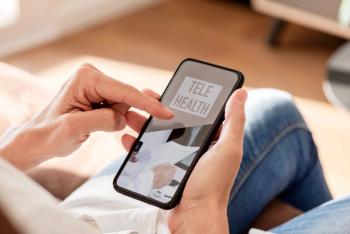
Merging COVID19 virtual hospitals for the future
A virtual hospital created in parallel during the COVID19 pandemic inspires a lasting innovation of telemedicine.
In mid-March federal and local governments announced a state of emergency in response to the
As it did for many medical centers, the Covid-19 pandemic inspired a vision of a virtual hospital for
We first launched an existing telemedicine program,
Rates of physician adoption of telemedicine have been high at BIDMC. Although the state of reimbursement was initially uncertain, we made reasonable assumptions and physicians at the medical center made every effort to incorporate video visits into their practices. The Department of Psychiatry, for example, quickly identified that their most vulnerable patients could benefit immensely from virtual visits. Within a few days, we were able to leverage Google Meet for clinicians so that they could offer continuity of care as well as evaluation and treatment to new patients during a time when an interruption of care could have been devastating. The launch of telepsychiatry outpatient services was subsequently mirrored by the inpatient psychiatry consult service. We allowed many platform adoptions by our clinicians so that we could learn from these efforts, coordinating efforts across the medical center with daily updates. In a matter of days, the number of ambulatory virtual visits increased from just a few to more than 1300 per day. We gradually permitted virtual consultations between physicians, leveraging our widespread and remote expertise to support front-line workers in the Emergency Department and hospital, in addition to our satellite sites. As the implementation of telemedicine continues to flourish across the US health care system, we must look forward to the parallel innovations that such disruption permits.
Continue reading on page 2...
Innovation across BIDMC has been impressive, and it provides a substrate for further digital health advancements. An iPad donation program at the medical center allows for intimate patient connection with loved ones, despite a ‘no visitors’ policy. Within days of request for more materials by BIDMC, the US Army and Harvard partnered to study, design and test 3D printed nasoparhyngeal swabs as supplies ran low. At the medical center, the Emergency Department deployed a self-navigating robot that moved from room to room facilitating virtual evaluations and minimizing exposure to Covid-19. Pulse oximeters and at-home monitors were donated and given to patients upon discharge from multiple hospital and ambulatory services, allowing more vulnerable patients to be safely monitored remotely. BIDMC’s latest endeavor,
There is no doubt that Covid-19 has challenged the previously well-established health care delivery model, but this challenge has also brought unprecedented innovation by physicians, health care systems, and the private sector. It is our hope that such innovation will lead to more comprehensive care for our patients, who are at the center of the health care we deliver. Many of the innovative programs that have stemmed from the Covid-19 pandemic will become a mainstay of the care we deliver at BIDMC. Video visits for post-hospital discharge care, telecounseling for behavioral health, and at-home vital sign monitoring are among the newer practices that we intend to continue to develop at our institution. As Covid-19 remains at the center of our “new normal,” the innovation behind the emerging strategies to health care delivery will continue to work to meet needs created by these new and often uncertain times.
As leadership and steering committees now work to return our hospitals to the pre-Covid era, including opening much needed in-person evaluations and procedures at medical centers, the parallel world of telehealth must continue and be integrated into the mainstream. Health care has been changed forever: we are now evaluating, diagnosing, and treating patients outside of hospital walls. We found that launching telemedicine in a HIPAA-secure way that connects the patient to their own physician within their health care system, rapidly enabled by the change in payment structures, was straightforward; this was fueled by a reduction in regulatory burden and an urgency to connect.
This new world should be encouraged, as we can open accessibility of in-person clinics to many more Americans. The skyrocketing demand for telehealth is ultimately finite, and although unprecedented, this innovative experiment by health care systems encourages a focused adoption of telehealth parity by payers. Ultimately, in order to integrate this parallel health care system, the challenge is on the payers to continue the access to medical care via telemedicine in the United States. If virtual care continues to be accessible to Americans, hospitals will continue to innovate to find ways of delivering it post-Covid-19.
Newsletter
Optimize your practice with the Physicians Practice newsletter, offering management pearls, leadership tips, and business strategies tailored for practice administrators and physicians of any specialty.




